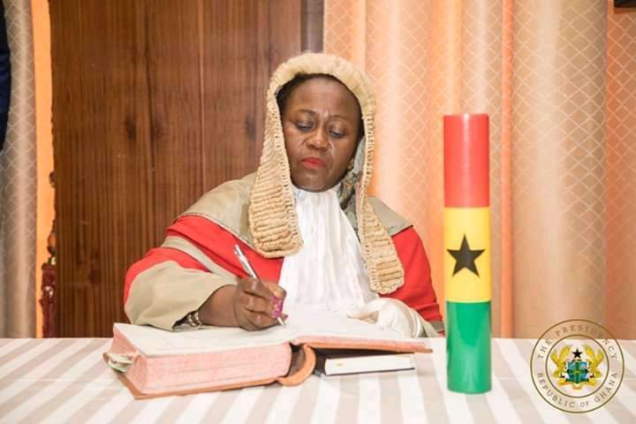The Supreme Court has set May 6 to hear the injunction applications against the petition to remove Chief Justice Gertrude Sackey Torkornoo from office.
The panel of four sitting instead of five, chaired by Justice Osei Bonsu, noted that the adjournment had been occasioned due to “unavoidable reason”.
Justice Samuel Asiedu, the fifth member of the panel, was absent when the case was called on Wednesday, April 16.
At the last adjourned date, former Attorney General Godfred Yeboah Dame, representing Old Tafo Member of Parliament as a plaintiff in one of the injunction suits, averred that the president ought to hold on with the consultation processes with the Council of State.
He noted that the law prohibits the continuation of court processes when there’s an injunction application.
But reacting to his assertion, Attorney General Dr Dominic Ayine indicated that no law prohibits the President from carrying out his constitutional mandate.
“He needs to understand that this is the performance of a constitutional duty and the law is very clear that you cannot enjoin the performance of a constitutional or public obligation,” the A-G noted.
Background
Vincent Ekow Assafuah, the Member of Parliament for Old Tafo and a citizen Ebenezer Osei Owusu have filed lawsuits at the Supreme Court of Ghana seeking to stop President John Dramani Mahama from initiating the removal process of Chief Justice Gertrude Araba Esaaba Sackey Torkornoo.
Both suits want the apex court to declare that the President’s actions violate constitutional provisions and threaten judicial independence.
They contend that under a correct interpretation of Articles 146(1), (2), (4), (6), and (7), along with Articles 23, 57(3), and 296 of the 1992 Constitution, the President is required to notify the Chief Justice about any petition for her removal and obtain her comments before consulting the Council of State.













